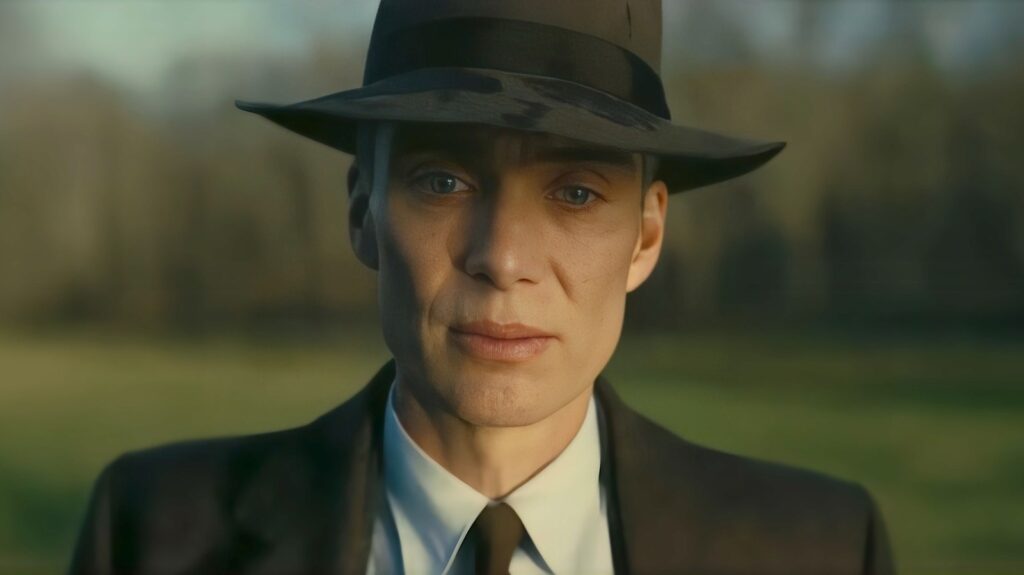The 2024 Oscar Nominees for Best Picture Ranked
Written by Ian Thomas Malone, Posted in Blog, Movie Reviews, Pop Culture
2023 was a fantastic year for filmmaking. The nominees for the Academy Award for Best Pictures have several contenders that would have been worthy winners in any of the three years since the pandemic. Of course, awards don’t work that way. Best Picture winners are forever immortalized, even in the years when any number of films could’ve eked out a victory.
Art is subjective, an inherent flaw of awards shows. Any number of people could rank the Best Picture nominees in a thousand different ways. My list reflects the way each filmmaker’s storytelling landed for me. Your list would almost certainly be different.
As a critic, I’m primarily interested in two elements of filmmaking: craftsmanship and messaging. All ten Best Picture nominees feature exceptional acting, an element of the art form that can often be found in complete turkeys. It is a far more daunting task to elicit genuine emotion from the audience toward perspectives quite foreign to their own. Art reminds us all of the inherent relatability of the human experience across the boundaries of space and time.
Here is my list, ranked from most deserving of Best Picture to least deserving. Your thoughts on the nominees and my ranking are encouraged in the comment section.
1. Anatomy of a Fall – A legal drama has not won Best Picture since 1979’s Kramer vs. Kramer. Anatomy of a Fall does not seem likely to break that trend, but Justine Triet’s intimate depiction of a writer on trial for the death of her husband presents one of the most captivating treatises on language depicted on film in the modern era. Sandra Hüller plays an eminently cold individual who manages to draw sympathy from the audience almost through a force of gravity, a gripping slow burn. Alternating between French and English, Triet constantly plays with the nature of identity and the agony of a human heart at war with itself. Few films manage to capture the claustrophobia of marriage without pointing fingers. People are often awful to each other. Life is not a scorecard, except in places like the courtroom, where everything is on the line.
2. Past Lives – Few films capture the quiet, painful dignity of heartbreak quite like Celine Song’s work. Greta Lee delivers a performance of eloquent nuance as Nora, a South Korean expatriate whose journey to America separated her from her childhood crush Hae Sung, played by Tae Yoo. For all of us, the passage of time is full of what-ifs, moments that could consume an entire existence if one allows it. Song handles her material with such grace, a style reminiscent of French romanticism and the best elements of the 2000s mumblecore wave. Few films capture the humanity of loss with such a restrained approach. No other Best Picture nominee captured the pain of love quite like Past Lives, a marvelous feat of filmmaking.
3. The Zone of Interest – The greatest triumph of Jonathan Glazer’s adaptation of Martin Ames’ 2014 novel of the same name is the way the film communicates the horrors of the Holocaust so vividly without ever depicting them on screen. The narrative focuses on Rudolf Höss and his family’s comfortable life in Auschwitz, with a single wall separating their idyllic existence from the atrocities just beyond their backyard. The cinematography puts quite a bit of distance between its subjects and the audience, though Christian Friedel and Sandra Hüller, the latter nominated for Best Actress for her work in Anatomy of a Fall, put forth commanding performances in the lead roles. The Zone of Interest is a tough film to watch, but Glazer deserves a lot of credit for his innovations in a well-trodden genre, an experience that leaves you completely drained by the time the credits roll.
4. Oppenheimer – Oppenheimer will almost certainly win Best Picture. Christopher Nolan’s work is both larger than life and strangely intimate, anchored by a tour de force performance from Cillian Murphy in the lead role. Few films with three-hour runtimes move with such deft precision, using Kai Bird and Martin J. Sherwin’s 2005 biography American Prometheus as its lodestar. The “Barbenheimer” phenomenon represented a singular convergence of blockbuster filmmaking and genuine art. Nolan’s split timeline non-linear narrative has the weird effect of taking the film outside both its subject and his bomb, a dynamic that starts to shrink Oppenheimer as the story progresses. Oppenheimer loses a bit of his mystery as a man when the narrative shifts to Los Alamos, appearing more like a traffic conductor or a politician than someone who rather singularly transformed the entire world.
5. Barbie – The defining blockbuster of 2023 is a worthy awards show contender. Greta Gerwig managed to transform a doll designed to be everything to everyone and deliver a message that felt both personal and universal, a sentiment best expressed through America Ferrara’s Oscar-nominated supporting performance. Robbie and Gosling are quite delightful in the lead roles, shuttling between the plastic world of Barbie and the plastic world of Los Angeles. Barbie gets a little cutesy when awkwardly poking fun at itself, but Gerwig’s work is well-deserving of a nomination, even if the film is unlikely to walk away with many trophies.
6. Poor Things – Few filmmakers can elicit genuine shock quite like Yorgos Lanthimos. An adaptation of the Alasdair Gray’s 1992 novel of the same name, the film follows Bella, a woman who was revived after her suicide when a mad scientist implanted her unborn child’s brain into her body. Emma Stone is absolutely captivating in the lead role, easily the best performance of her career. The film possesses the best set design of all the nominees, with gorgeous steampunk aesthetics, but the story loses a lot of its power as the narrative wears on. Lanthimos’ most beautiful film is quite compelling in its own way, though its quasi-feminist messaging leaves a lot to be desired.
7. American Fiction – Cord Jefferson’s adaptation of Percival Everett’s novel Erasure is an absolute delight that marches to the beat of its own drum. Jeffrey Wright delivers a commanding lead performance as a writer/professor who finds unexpected success with a satire of stereotypical Black narratives that pander to white audiences. A powerful and necessary scathing rebuke of the publishing industry’s treatment of marginalized authors. Jefferson’s work struggles a bit down the stretch, but it’s a delightfully charming film. Sterling Brown, Tracee Ellis Ross, and Issa Rae deliver strong supporting performances.
8. The Holdovers – There is a lot to like about The Holdovers, a charming 1970s period piece about a Massachusetts boarding school. Paul Giamatti showcases his leading man chops as a hapless curmudgeonly teacher, bolstered by strong backing performances from Da’Vine Joy Randolph and Dominic Sessa. Director Alexander Payne plays it a little too safe with his narrative that borrows too heavily from filmmakers of the time period. Giamatti would be a worthy upset over likely Best Actor winner Cillian Murphy, but The Holdovers itself is hardly Best Picture worthy.
9. Killers of the Flower Moon – The framing for Martin Scorsese’s epic western centered on the 1920s Osage Indian murders is a complete disaster, focusing on a woefully miscast Leonardo DiCaprio instead of the far more compelling Lily Gladstone. Nominated for Best Actress, Gladstone finds herself sidelined for much of the unwieldy 206-minute runtime. Robert DeNiro and Jesse Plemons put forth strong supporting efforts. The cinematography is superb, but Scorsese’s exceedingly relaxed pacing undoes almost all its dramatic tension.
10. Maestro – Bradley Cooper shows off his ample technical skills as a director in his sophomore effort, while also exposing some glaring flaws as a storyteller. Cooper’s first film, A Star is Born, was the third remake of the 1937 classic. Maestro presented no easy crib sheets, a meandering slog that feels much longer than its 129-runtime suggests. As an actor, Cooper disappears into the role of Leonard Bernstein, but he doesn’t have anything compelling to say. Carey Mulligan does her best grasping at straws for material amidst this poorly conceived avant garbage.











